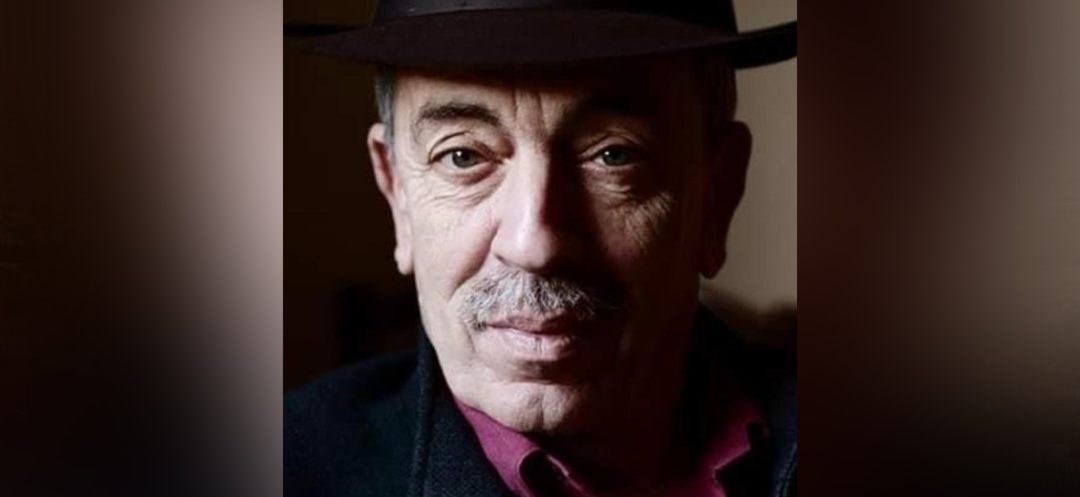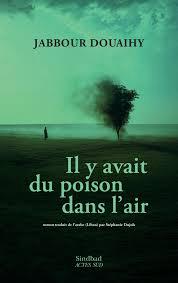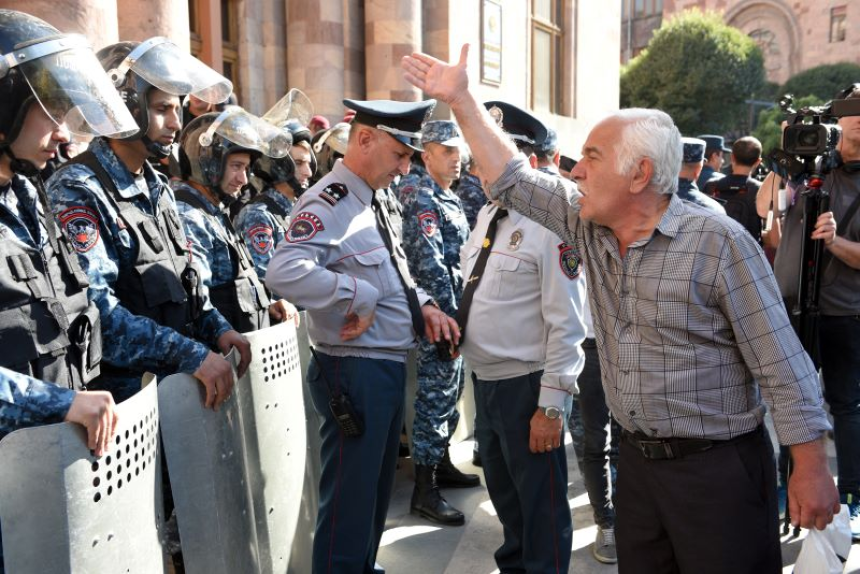
The roundtable "Jabbour Douaihy: A Life, A Work" paid a heartfelt tribute to the late Lebanese writer who passed away in 2021 at the age of 72, on the occasion of the French release of his novel Il y avait du poison dans l'air. The event brought together literary figures and close friends of the writer.

On Friday, June 14, the Safadi Center in Tripoli hosted a special roundtable titled "Jabbour Douaihy: A Life, A Work," that was organized in parallel with the release of the French version of Jabbour Douaihy's book Il y avait du poison dans l’air (Poison in the Air) by Actes Sud (Sindbad collection). This event, jointly organized by the French Institute of Tripoli, the Al-Tawarek Foundation, the Francophone Identity Committee of Zgharta Zawie, the North Lebanon Campus of USJ (Saint Joseph University), and the French Literature Department of the Lebanese University (LU) in Tripoli, gathered prominent literary figures, the author's close friends, and literature enthusiasts to offer a vibrant tribute to one of the greatest Lebanese writers.

After a warm welcome from Emmanuel Khoury, Director of the French Institute of North Lebanon, the session began with the screening of the late writer's final interview, a stirring moment that allowed participants to rediscover his voice and thoughts. Next, Ms. Zahida Darwiche Jabbour, who collaborated with Jabbour Douaihy for many years at the Lebanese University, delivered a heartfelt testimony about the man and his contributions as a professor of French literature. She emphasized Douaihy's exceptional human qualities, his dedication to his students, and his passion for teaching. Zahida Darwiche Jabbour also spoke of the special ties that bound the writer to the city of Tripoli, a city he held dear for having spent his youth there and which he immortalized in many of his works.
The roundtable, moderated by Walid Farah, President of the Francophone Identity Committee of Zgharta-Zawie, brought together prominent speakers such as Antoine Courban, Charif Majdalani, and Alexandre Najjar. Together, they delved deeply into Jabbour Douaihy's work, highlighting the richness and complexity of his literary style, which subtly addresses the themes of identity, culture, and Lebanese society.
Douaihy's novels, such as June Rain, The Vagrant, The American Neighborhood, Printed in Beirut and The King of India, often grounded in Lebanon's reality, especially during the civil war, offer a vivid exploration of the tensions among religious communities and social divisions that have shaped the nation.
In his speech, Charif Majdalani emotionally recalled his close bond with Jabbour Douaihy: "Faced with the serious-mindedness of those who insist that a novel must convey a message or a thesis, or faced with the convolutions of certain critics who overlook the essence of the art of the novel claiming that a novel is futile, was a gratifying and needed provocative stance, a deliberate challenge to conventional wisdom, and a playful embrace of contradiction."
The French version, Il y’avait du poison dans l’air, adds to an already rich and internationally acclaimed body of work, establishing Jabbour Douaihy as a prominent figure in contemporary Lebanese and Arab literature. The speakers honored the translators' remarkable efforts in bringing the treasures of Arabic literature to an international audience. Nevertheless, Douaihy's literary influence transcends the French speaking sphere as such; thanks to the English translations of his novels, English speaking readers can also delve into the distinctive literary world of this renowned Lebanese writer.
During the debate that followed the roundtable, Maria, Jabbour Douaihy's daughter addressed the audience, visibly moved by the tribute paid to her father. Her heartfelt remarks added a personal and intimate touch to the discussion, revealing the man behind the writer and the deep influence he had on those around him. The session concluded with a simple and touching remark from Thérèse, Jabbour Douaihy's widow. Her words recalled the unwavering love and support that surrounded the writer throughout his life and career.
This event highlighted the significant legacy left by Jabbour Douaihy in Lebanese and Arab literature. A mentor to many young writers, he took part in numerous writing workshops and tirelessly worked to promote Arabic literature and its translation into foreign languages. His influence is palpable in the writings of an entire generation of Lebanese authors who have been inspired by his talent and vision.
The roundtable "Jabbour Douaihy: A Life, A Work," organized at the Safadi Center in Tripoli, will remain a heart-rending moment in commemorating the life and achievements of this exceptional writer who left too soon!
Read more






Comments